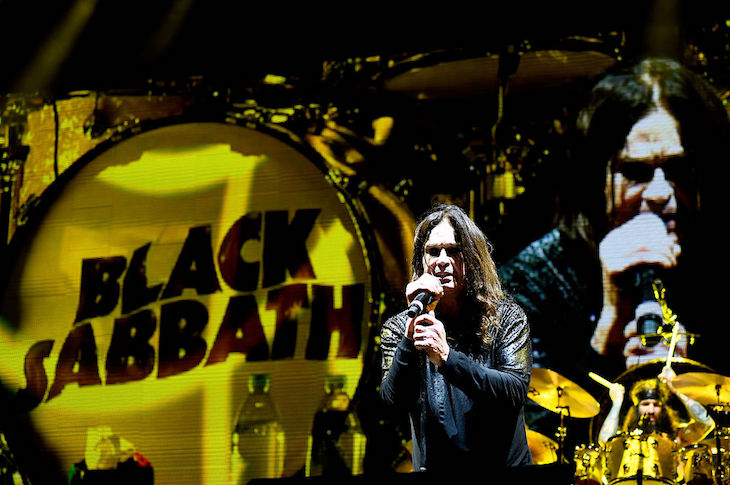To get a reminder of how strange the 1970s were, there’s no need to plough through lengthy social and political histories. Go instead to YouTube, and watch the public-information films made for schoolchildren. Take Lonely Water (1973), in which Donald Pleasence provides the voice of death, stalking careless children and dragging them to a watery grave. There’s Apaches (1977), in which kids playing on a farm suffer various recondite forms of agricultural death (falling under the wheels of a moving tractor, drowning in slurry). Or try my personal nightmare, The Finishing Line (1977); a school sports day, played out on a railway line, which ends with the traditional sprint through a tunnel pursued by a train and the bodies of dozens of dead children laid out on the track. It wasn’t all Spangles and Space hoppers, whatever stand-up comedians might have you believe.
This autumn, two enormous new rock box sets — so heavy you could devise a workout routine around them — take on the 1970s, and offer differing views of that decade but linked perhaps by those public-information films. Black Sabbath’s The Ten Year War compiles all the albums the group made with Ozzy Osbourne as their singer during their first iteration, and is the sound of the adult narrators of those clips: You are all going to die, horribly! Bowie, in retrospect, on A New Career in a New Town 1977–1982, sounds more like the kids: positively fancy-free, having come through his own paranoid phase immediately prior to this period. Before decamping to Europe in 1976, he had been holed up in Los Angeles, subsisting on milk, peppers and cocaine, and keeping his urine in a fridge for fear a witch would use it to cast a spell on him (why he didn’t realise that flushing it down the loo might be a better way to protect it from supernatural interference is another question).
At the time, though, you wouldn’t have bet money on Sabbath being as worthy of memorialising as Bowie. This, after all, is the group of whom NME said in 1975: ‘Black Sabbath are simply low-consciousness music.’ And you wouldn’t have bet that their view of the world would resonate strongly enough, 40 or more years on, that in every country where rock music is played, young musicians still pick up guitars to play loud, gloomy, slow songs about how awful everything is, with occasional references to Satan (in the codified way of these things, this particular style is now known as ‘doom metal’).
What Sabbath knew is that for someone, somewhere, the world is always terrible, and the more terrible things are, the more resonant their music would sound. Hence its enormous popularity in America’s rust belt, and the resurgence of metal’s popularity in the late 1970s and early 1980s, with unemployment rising in the music’s traditional bastions in industrial areas. The Ten Year War, with its warnings of apocalypse at the hands of ‘War Pigs’, its fretting about mental illness on ‘Paranoid’ (‘All day long I think of things/ But nothing seems to satisfy,’ could have been written this year about kids driven to distraction by social media), sounds astonishingly timely in 2017.
Bowie, of course, is Bowie. His legacy is sacrosanct, and with good reason. Yet it’s his box set that is more of a time capsule. The three albums that make up the meat of A New Career in a New Town — Low, Heroes and Lodger, known inaccurately as ‘the Berlin trilogy’ — are, for all the quasi-classical noodling of the instrumental pieces on the first two, works of pan-European optimism. What could be more emblematic of European unity than proclaiming that we could be not just heroes, but also Helden and héros, on the German and French versions of the song? As Bowie reinvents himself, you hear not just the sound of his own vaulting ambition, but the sounds of worlds closed to most people — not just Berlin bohemia, but also the thriving underground club scene of the nascent new romantics on Scary Monsters (And Super Creeps) and the high-art world of his soundtrack for Bertolt Brecht’s Baal.
Bowie’s was an elitist vision of pop, one framed by an art-school education, one where he explained the world to his acolytes. Sabbath’s was populist, the sound of Brummie lads far from London’s metropolitan trendsetters, born of grunt work and disillusionment, reflecting a white, blue-collar audience’s own alienation back at them. You don’t have to be a social historian or theorist to look at Britain and know which worldview is holding sway right now.






Comments